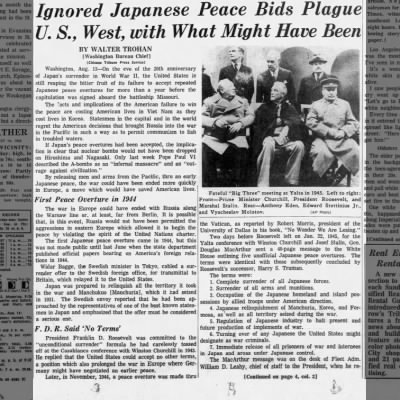JoeB131
Diamond Member
you people just scratch the surface with your knowledge of WW2
10 times is in QUOTES
Nearly twice the population of Japan.
Seventeen time's Japan's national income.
Five times more steel production.
Seven times more coal production.
Eighty (80) times the automobile production.
Which, again, had nothing to do with military parity... Had the Japanese won the battles of Midway and Coral Sea, they'd have dominated the Pacific.
again, I have a degree in 20th century history.... what do you have?
